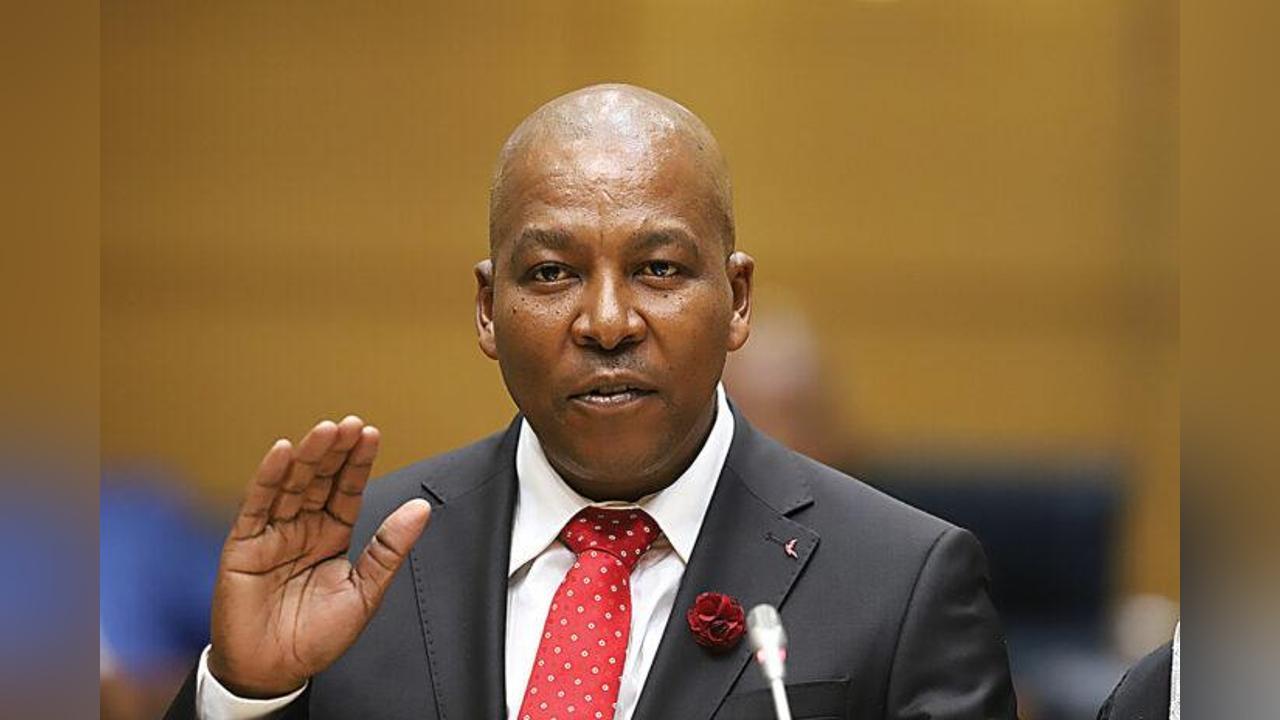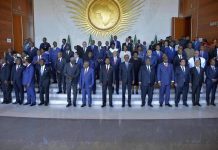Africa-Press – Botswana. The Statutory Instrument No. 99 of 2023, published in September 2023 setting the 90 per cent quota for petroleum products will not affect the majority owned citizen companies, which is the remaining 10 per cent of the quota allocation.
They will continue to import as per their volume demand, which has been confirmed to be under the 10 per cent of the current consumption.
This was stated by Minister of Minerals and Energy, Mr Lefoko Moagi when answering a question from the Maun West Member of Parliament, Mr Dumelang Saleshando on November 20.
Mr Saleshando had asked the minister to state how the Statutory Instrument No. 99 of 2023, published on September 2023 setting the 90 per cent quota for petroleum products would affect entities that were majority citizen-owned in the petroleum industry.
Mr Saleshando also wanted the minister to state the number of entities owned by Batswana who had been engaged by Botswana Oil Limited (BOL) for importation of petroleum products and the monetary value of the total imported products over the last three years; the measures put in place to ensure that citizen owned entities that import petroleum products for their own private clients or usage would not be affected by the quota established for BOL and how citizen owned entities would be protected against competition with a government-owned entity.
To that, Minister Moagi stated that in the past three years, BOL had contracted 14 citizen companies to transport fuel imported by the BOL as part of the BOL’s citizen participation drive.
Mr Moagi said in 2021/22, the value spent on citizen transporters was P8 312 877 while for the period 2022/23 it was P73 133 605.
He said P34 100 325 was spent during the 2023/24 period.
He said the quota allocation was issued in cognisance of other existing citizen company players actively participating in the importation of petroleum products into the country, hence the 90 per cent allocation instead of the 100 per cent .
The allocation has been issued in such a manner as to allow the remaining 10 per cent to be for the citizen-owned entities to either participate or continue with their existing importation business, said Mr Moagi.
He further said the quota allocation was protective in effect in that it prescribed specific quotas for BOL with the balance accommodating citizen companies.
Licenses issued to the different players would prescribe the quota allocated, and players shall be expected to operate within the prescribed limits, he said, adding that competition would be in the retail and commercial space where BOL would not participate unless it was deemed strategic by government and the terms for participation were clearly articulated.
Minister Moagi said the energy regulator would provide oversight on the performance of the different players in line with their quota allocations to ensure security of supply for the country. Giving a background, Mr Moagi said Botswana had all along relied on imported petroleum products mainly from South Africa and over the years the country experienced fuel supply constraints due to global fuel shortages.
This he said had been attributed to the COVID-19 pandemic, the Russia-Ukraine conflict and refinery closures at the main source of supply, South Africa.
The petroleum sector has been predominantly controlled by the multinational oil companies whose primary motive is to maximise profit and not prioritising national interests especially security of supply and citizen empowerment, Mr Moagi said.
He said a few citizen-owned oil companies existed. However, he said their growth had been hampered by barriers to entry making citizen empowerment in the petroleum sector virtually unattainable. He said the Botswana petroleum sector was faced with several challenges, which included limited investment into oil logistical infrastructure, intermittent fuel shortages, fuel being brought into Botswana in small, costly and uncoordinated parcels.
Unless the challenges were managed effectively, Mr Moagi said the security of supply would be compromised with due consequences.
He said in many countries, national oil companies were formed to address the challenges facing the petroleum industry.
Mr Moagi said in the case of Botswana, the objective of establishing BOL was to address key issues such as but not limited to, ensure the security of supply of petroleum products in the country, seek and implement alternative routes and sources of supply to reduce over-dependence on one source (South Africa) of products, which threaten the security of supply, reduce overreliance on multinational oil companies for importation and distribution of petroleum products.
Objectives also include to develop local technical expertise and capacity to undertake petroleum sector activities, ensure most of the profits from the petroleum business remain in Botswana, as well as create a high value employment and other opportunities in the fuel supply value chain.
He said BOL was a state transformation agent for ensuring that the government’s objectives in the petroleum sector were realised.
The minister said the company would ensure that government had control over the petroleum importation and distribution network.
As part of ensuring security of supply for the country, Mr Moagi said government had charged the BOL with the responsibility of importing the majority of the fuel consumed in the country to ensure that there was control on availability of fuel in the country by consolidation volumes who then gave the BOL leverage to negotiate better outcomes for the country.
Since inception, the BOL has been importing petroleum products into Botswana, directly importing from refineries’ and suppliers located in South Africa, Mozambique and Namibia, Mr Moagi said and added that the company had been an importer of last resort and had been able to support the whole industry in difficult times to ensure the security of supply, including supply to citizen-owned oil companies.
For More News And Analysis About Botswana Follow Africa-Press






